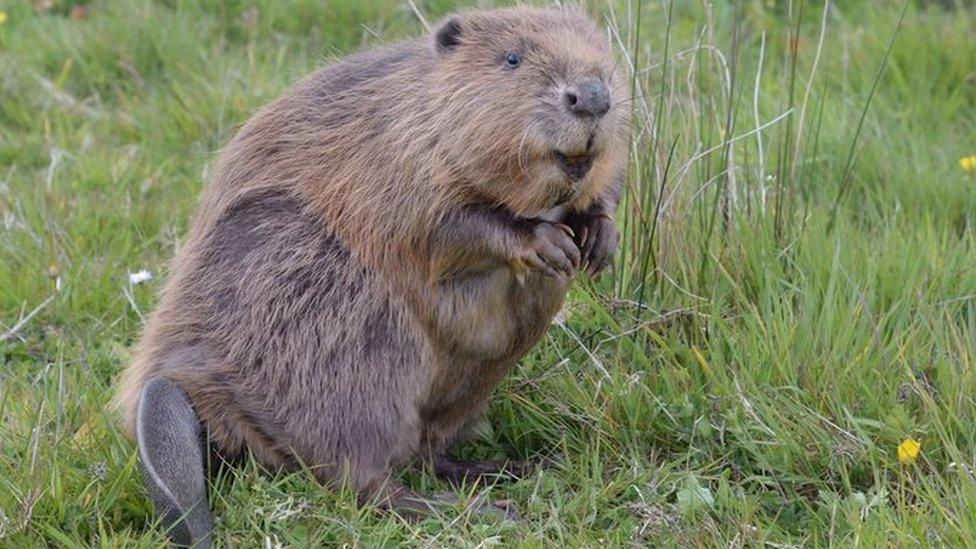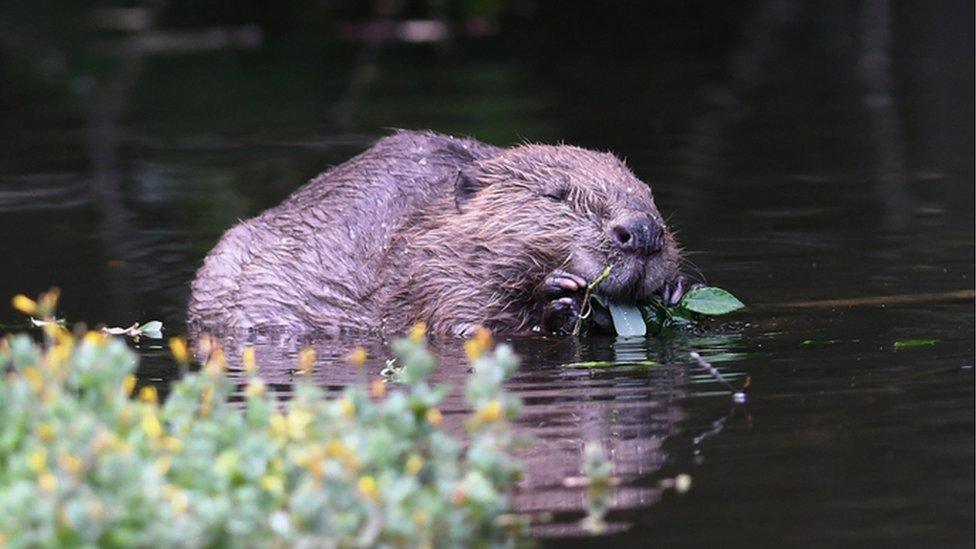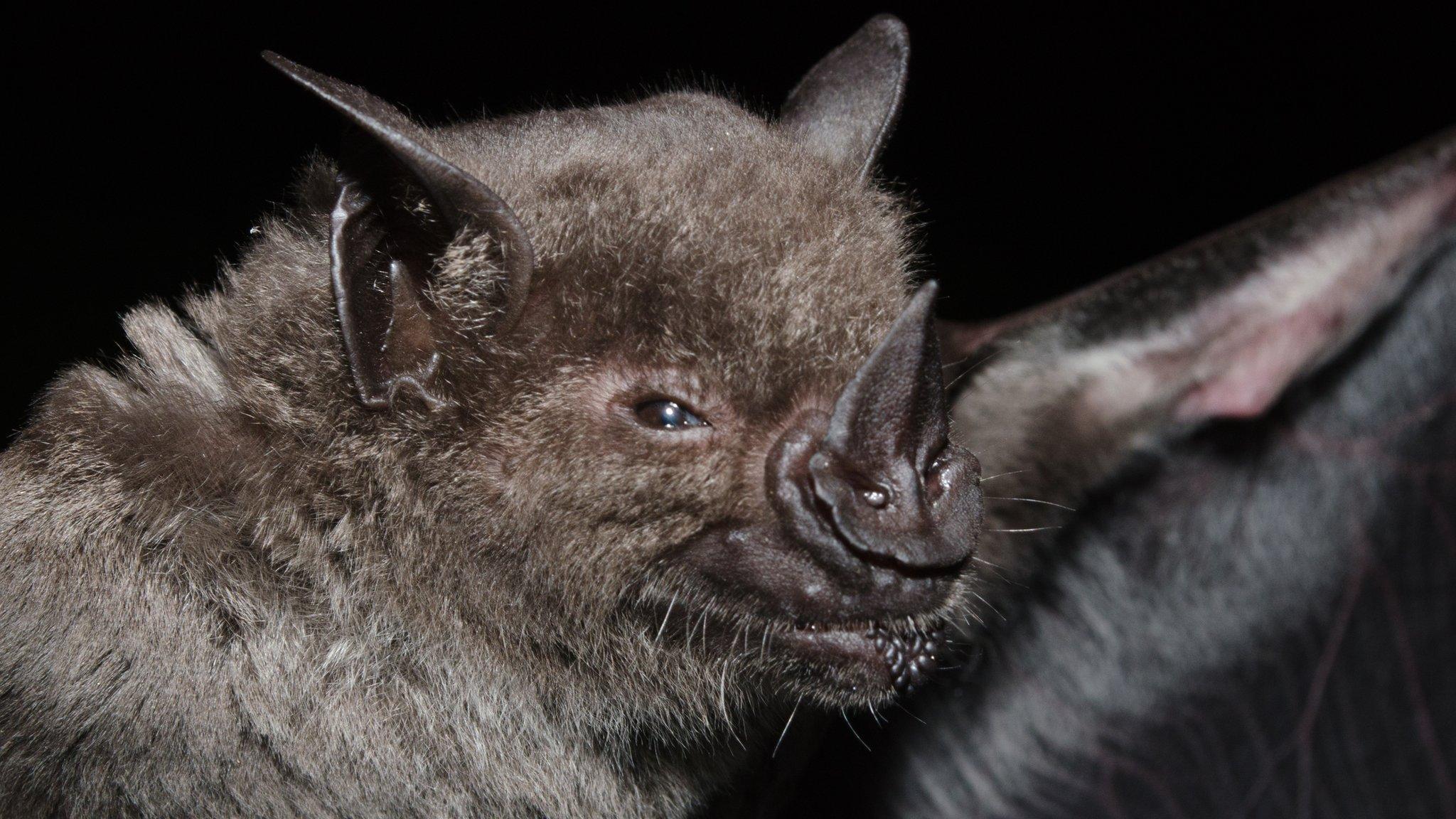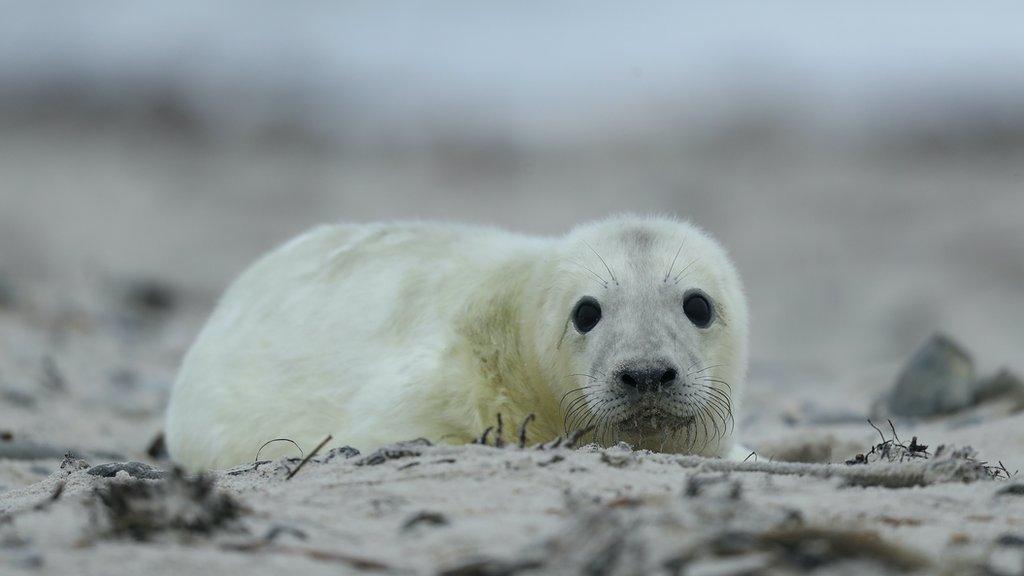Beavers return to Cumbria after 400 years
- Published
- comments

Two adult beavers have been re-homed from Scotland to the Lowther Estate near Penrith in Cumbria
Two beavers, named Dragonfly and Glen, have been released on a Cumbrian country estate as part of a five-year scientific trial.
The aim is to find out the impact of beavers in an upland environment, in particular on a stream in a farmed landscape.
The animals, which were hunted to extinction in the UK in the 16th Century, have been homed in a 27-acre enclosure at Lowther Estate, near Penrith.
Lowther Estate conservation manager Jim Bliss said he hoped they would have kits in the spring. A kit is a baby beaver.
We're thrilled to finally have beavers at Lowther
The beavers arrived at the estate from Scotland and "were checked thoroughly before being transferred to their new surroundings", conservation manager Jim Bliss said.
The female beaver, Dragonfly, was relocated from the River Tay while Glen, the male, was rescued from the outflow of a hydroelectric plant in Perthshire by the Scottish Society for Prevention of Cruelty to Animals.
Mr Bliss went on to say: "We are leaving the beavers undisturbed so that they can adapt to each other and their new surroundings.
"We have already seen signs of dam-building and canal systems, built to allow access to the woodland area. The dams they've constructed will hold back a lot of water, as well as storing silt. This all helps to improve the water quality and biodiversity of the area."

Beaver at Cornwall beaver project
What is the trial looking at?
Talking about the study, Mr Bliss said: "We'll carry out a range of surveys, from fixed-point photography to monitoring vegetation, habitat and water course changes. We already conduct annual surveys throughout the estate, looking at wildlife populations, and it will be interesting to see how these change as a result of the beaver trial."
Camera traps have been set up to capture footage of the pair as they settle into their new home.
David Harpley, chairman of Cumbria Beaver Group and conservation manager at Cumbria Wildlife Trust, said a trial in Devon showed beavers could improve water quality, create habitats for other wildlife and reduce flood risk by building dams that slow the flow of flood water.
"Beavers are often referred to as 'ecosystem engineers'," he said.
"They make changes to their habitats, such as digging canal systems, damming smaller water courses, and coppicing tree and shrub species, creating open water habitats which provide a home for many other creatures, such as otters, water shrews, water voles, birds, invertebrates (especially dragonflies) and breeding fish."
Enjoy your new home, Dragonfly and Glen!
- Published27 October 2022
- Published27 October 2020

- Published26 October 2020

